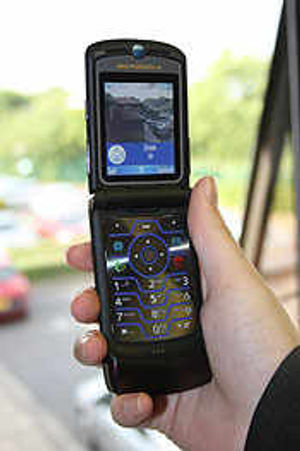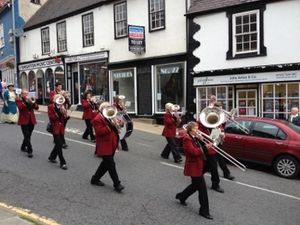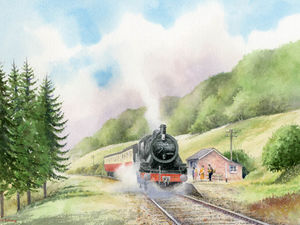Thumbs up in the crime fight
Mixing adults with technology designed for kids is a disaster waiting to happen, writes Rural Affairs Editor Nathan Rous.

 "Hlp, I thnk iv sn a brglr. Pls rng cps b4 ofndrs drv off."
"Hlp, I thnk iv sn a brglr. Pls rng cps b4 ofndrs drv off."
When it comes to fighting crime, abbreviating your words and sticking the occasional number in its place is about as effective as using pipe cleaners for hndcfs. Sorry, handcuffs, writes Rural Affairs Editor Nathan Rous.
After all, mixing adults with technology designed for kids is a disaster waiting to happen (think Michael Winner attempting to master the new iPod Touch).
And surely I can't be the only one who's received a text from a parent and spent the next 40 minutes trying to decipher it as they lurch from capitals to lower case and numbers to anagrams.
But a new crime-busting scheme in rural Lancashire is attempting to do just that - squeal on the criminal fraternity via the awkward medium of text messaging. The new operation in the Ribble Valley will use internet and mobile phone technology to provide information about suspicious incidents.
Farmers, gamekeepers and rural businesses are being asked to sign up to the initiative - Target Rural and Community Crime Areas - and become the police force's eyes and ears on the ground, passing the information on to officers with the help of a rapid-fire thumb.
Constable Nick Mattock is the brains behind the operation. He has no doubt had enough of cycling round on a mountain bike taking two-and-a-half hours to get to an incident when someone else can do the job for him.
"By telling people what is going on, others can keep their eyes and ears open and pass information back to us quickly enough for us to do something about it," he explained.
"Over the past 20 years a number of police forces have had schemes to distribute information using landline phones or e-mails, but research showed that people did not check their e-mails or their answer-phones regularly enough to get the information while it was still relevant.
"However, research by local police found that most people who were out and about in the countryside did have a mobile phone and were on networks that gave them the best reception in their area."
That last bit is intriguing. When did you last have a decent reception outside Telford or Shrewsbury (and I'm not talking weddings here)?
Come to think of it, you don't even get a decent signal in Shrewsbury, so imagine trying to alert police to an ongoing raid in the shadow of the Clee Hill?
Admittedly we should get used to the fact that Government's resources are only being directed into our towns and cities.
The very fact we have police at all in the countryside is something that continually amazes me, for the only time I see any evidence of them is when the council tax bill lands on the mat telling me how much I pay for them every year.
A recent survey showed those of us in rural areas pay £8 out of every £100 we earn in council tax compared to just £2 or £3 for our metropolitan cousins. It underlines the fact that the police are not cheap, even the invisible ones.



